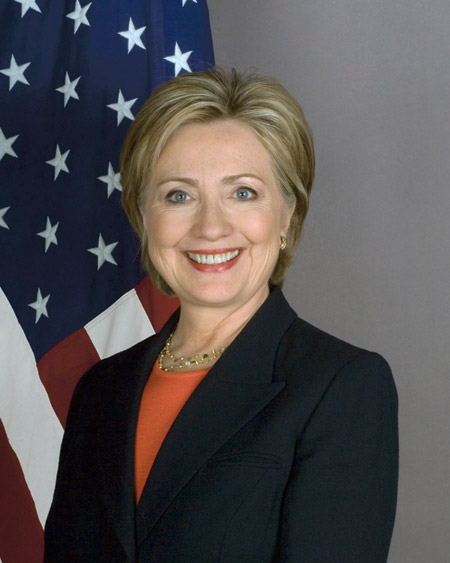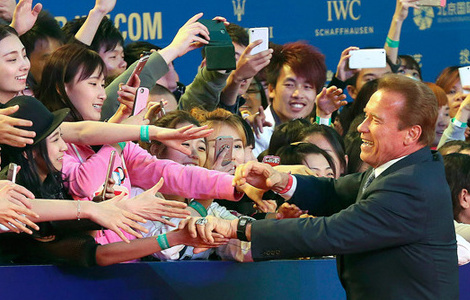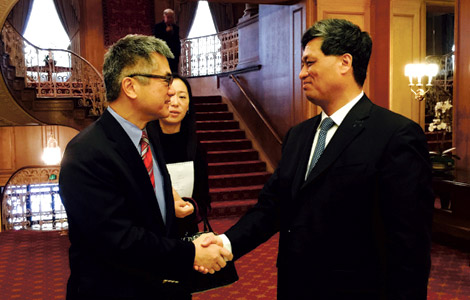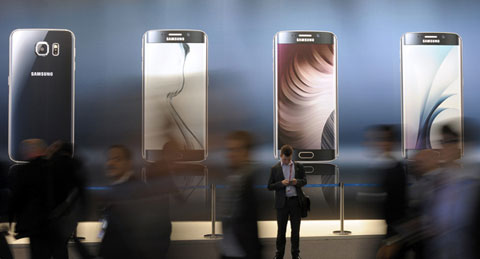China and the 2016 US election
Updated: 2015-04-18 00:47
(China Daily USA)
|
||||||||
 |
|
Hillary Clinton, Democrat, former US secretary of sate, former US Senator, New York |
In the final US presidential debate in 2012, China was mentioned 35 times, and political and foreign policy analysts expect it could play a role in the 2016 race, reports Paul Welitzkin from New York.
In the 2012 US presidential election, Republican challenger Mitt Romney took a hard line on China. He accused Beijing of manipulating its currency and taking advantage of unfair trade practices, and criticized President Barack Obama for being too soft on the rising Asian power.
Obama fired back, saying his administration had filed twice as many trade cases against China as his predecessor, George W. Bush. Obama unveiled what he called a strategic "pivot" toward the Asia- Pacific region aimed at re-invigorating US military and economic influence in the fast-growing area.
"Since 1989 China has been a campaign issue and both candidates have been pressured to turn more hawkish on trade, currency manipulation and human rights," Peter Feaver, a political science professor at Duke University in Durham, North Carolina, said in an interview.
"After the election is over, China policy remains fairly stable. A good example was in 1992 when Bill Clinton criticized incumbent George Bush over his China policy. Once elected, Clinton basically continued same policy as Bush had toward China."
In the 2016 presidential election, China is expected to assume a prominent role even if only on a temporary basis, but for different reasons from four years earlier. Kenneth Lieberthal, senior fellow at the John L. Thornton China Center at the Brookings Institution in Washington, believes that the issues this time around will center on cyber security, trade and regional security.
Cyber issues
On cyber or online issues: "This issue will cut across many different sectors from the theft of intellectual property to concerns about cyber spying and the ability to disrupt technology or commerce," Lieberthal said in an interview.
On trade: This is not likely to focus on the usual suspect of China stealing jobs from the US, he said.
"US capital stock in China is receding every year while Chinese investment in the US is increasing rapidly," he added.
The most contentious aspect of trade may be about a bilateral investment treaty. "If one is going to get done, it will probably have to be this year. I don't see a treaty being approved during an election year," he said.
China's policies toward high-end US technology companies may also be an issue.
"China's high-end service sector is dominated by state-owned firms and the Chinese government wants them to get more domestic business. The US is very strong in this sector and it is one of our leading exports," explained Lieberthal.
Regional security: China's buildup in the South China Sea - one of the world's busiest shipping routes - may become a topic, according to Lieberthal. Beijing asserts sovereignty over most of the South China Sea, including areas near the coasts of other countries, using a line that first appeared on Chinese maps in the 1940s.The Philippines, Vietnam, Malaysia, Brunei and Taiwan all have overlapping claims.
"There is nervousness about stepped up Chinese activities in the region in taking over small atolls and building them up. Some see this as a precursor to establishing a Chinese air-defense zone in the area and that could be problematic," Lieberthal said.

 Beijing film festival draws top moviemakers, Oscar winners
Beijing film festival draws top moviemakers, Oscar winners
 Across America over the week (from April 10 to 16)
Across America over the week (from April 10 to 16)
 Historic hotels offer more than a view
Historic hotels offer more than a view
 Top 10 foreign holders of US Treasuries
Top 10 foreign holders of US Treasuries
 Lost in sandstorms
Lost in sandstorms
 New roles for technology: Rise of robots
New roles for technology: Rise of robots
 Strange but true: Getting ahead of the rest
Strange but true: Getting ahead of the rest
 Top 10 industries with most job-hoppers
Top 10 industries with most job-hoppers
Most Viewed
Editor's Picks

|

|

|

|

|

|
Today's Top News
China and the 2016 US election
World Bank, IMF: will work with AIIB
Ex-PM says US, China can be allies
Hainan Air links San Jose, Beijing
Carrying on a Chinese food legacy
America, Europe told to work with BRICS
Beijing film festival draws top moviemakers, Oscar winners
Chinese teachers mark progress
US Weekly

|

|






